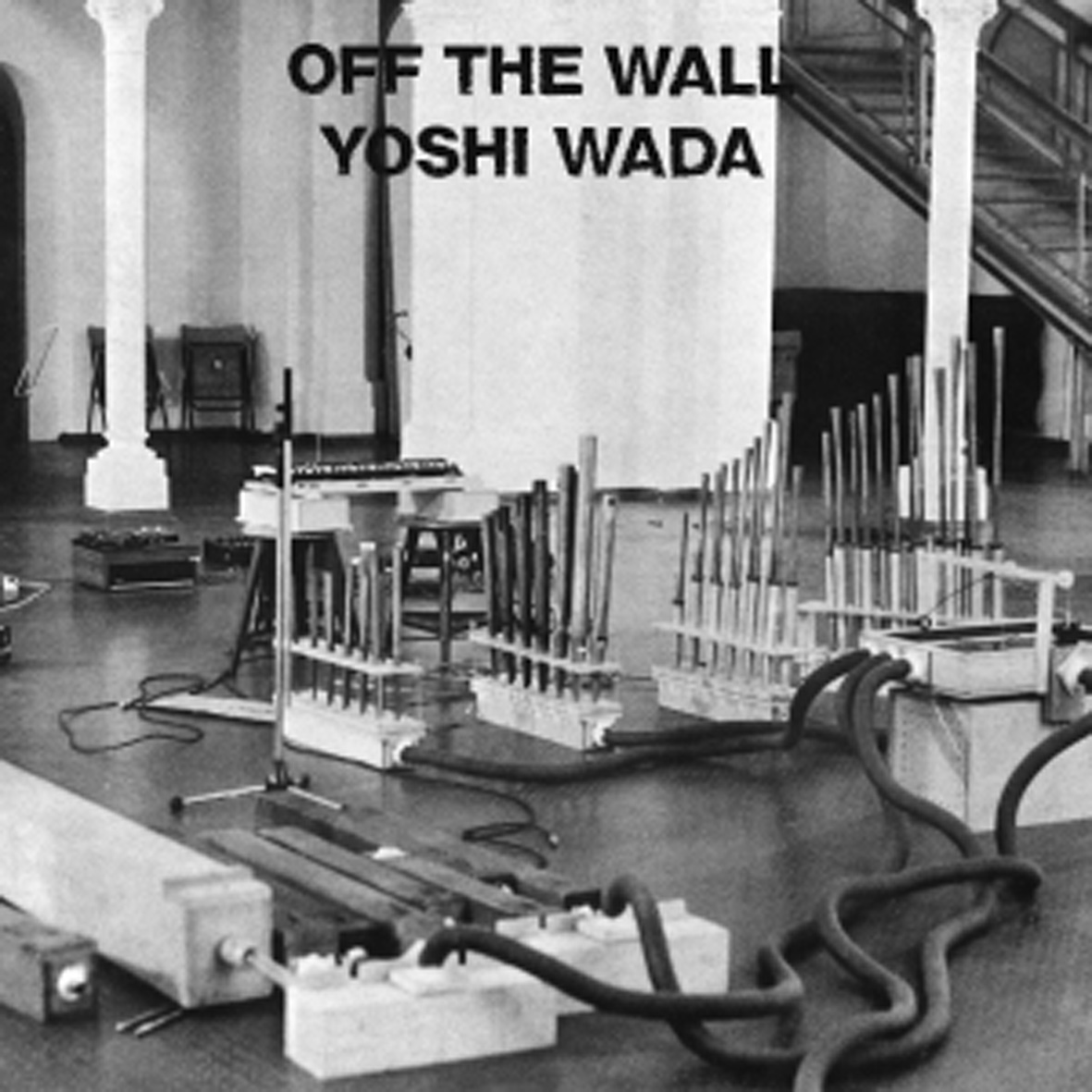Yoshi Wada, "Off the Wall"
 Newly reissued by his own Saltern imprint, 1985's Off the Wall takes its droll title from the rich acoustic properties of the Berlin studio that Wada was using as a practice space at the time.  While not quite crazy enough to warrant the more expected meaning of its title, this is definitely a very strange and ambitious album, as Wada’s small ensemble employed an arsenal of homemade bagpipes and organs to exploit the sonic properties of their surrounding architecture: the room guided the composition.  Unusual instrumentation and process aside, Off the Wall is also a curious anomaly stylistically, transforming the Eastern drone aesthetic of La Monte Young and Pandit Pran Nath into something resembling medieval Scottish free-jazz.  For better or worse, that is definitely a niche that does not get filled very often.
Newly reissued by his own Saltern imprint, 1985's Off the Wall takes its droll title from the rich acoustic properties of the Berlin studio that Wada was using as a practice space at the time.  While not quite crazy enough to warrant the more expected meaning of its title, this is definitely a very strange and ambitious album, as Wada’s small ensemble employed an arsenal of homemade bagpipes and organs to exploit the sonic properties of their surrounding architecture: the room guided the composition.  Unusual instrumentation and process aside, Off the Wall is also a curious anomaly stylistically, transforming the Eastern drone aesthetic of La Monte Young and Pandit Pran Nath into something resembling medieval Scottish free-jazz.  For better or worse, that is definitely a niche that does not get filled very often.
At first glance, Off the Wall is admittedly quite a tough sell (even by experimental music standards).  For one, I suspect that the audience for prolonged bagpipe freak-outs was quite small back in 1985 and it has likely not grown much since.  Though they certainly lend themselves nicely to drone-based music, bagpipes are fundamentally doomed to always be regarded as a definitively uncool instrument.  Secondly, this album’s very raison d'être is quixotically rooted in the acoustic properties of the room that it was recorded in.  The room that it is being played in (mine) is presumably very different, so much of the spatially dynamic and reverberant character of the performance has been lost or (at best) only partially conveyed by the recording.  Thankfully, I have a healthy appreciation for both futility and the perverse (a Japanese man in Germany building traditional Scottish instruments) and Off the Wall is bizarre enough to (mostly) work solely due to its brash, dissonant, and anachronistic compositional properties.  I still have absolutely no idea why Wada hand-built an organ especially for these recordings though, unless it was something as simple as "I want a pipe organ and I cannot possibly fit one through the door of my studio."  The bagpipes, however, were pre-existing, as instrument-building has long been one of Wada's many talents.
The album is split into two 20-minute halves that feel more like variations on the same piece rather than a single 40-minute piece that has been divided due to the constraints of the vinyl format.  The first side starts off innocently enough, as Wada's ensemble uses shifting bagpipe drones to create a complex, yet subtle cloud of overtones and oscillations.  Aside from the intentional overtones and the underlying organ, it is not a far cry from traditional Scottish music at all.  To my ears, Off the Wall is probably best (or at least most easily) appreciated as a kind of free-form fantasia on traditional Scottish music, as the timbre and melody of the bagpipes is nearly impossible to ignore, making the piece’s more subtle attributes very hard to focus on.  Gradually, however, Off the Wall delves into much stranger territory, as a hollow timpani groove kicks in and the ensemble's playing gets considerably more dissonant, erratic, and busy.  At times, it resembles a swarm of very annoying bees, but it occasionally opens up into calmer vistas, sometimes even resembling some sort of majestic and ceremonial court music.  The album’s second side essentially offers more of the same, as bagpipes are not well-known for their versatility.  Off the Wall basically has two modes: cacophonous squall and Scottish highlands drone.  For the most part, the latter aesthetic is the one that works best.
There are a number of frustrating elements to this album, but it is worth noting that almost none of them are what I would have anticipated.  For example, I would definitely expect 40 solid minutes of unrelenting avant-garde bagpipe music to grate on me. To some degree, I suppose it did, as this is not easy listening by any means.  However, my larger problem is that Off the Wall tries to cover too much stylistic territory within each single piece.  This would have been a much better album if Wada had, say, written some individual drone pieces and some individual free-form blow-outs.  There are some great moments of each throughout Off the Wall, but they do not coexist easily within the same composition.  Also, I could definitely do without the percussion, as the rolling timpani rhythms and cymbal flourishes give everything a very rigid and dated "classical music" feel.  They definitely do not add anything to the piece, whereas a good free-jazz drummer could have transformed the more frenzied bits into something considerably more volcanic.  I am not sure how available shit-hot jazz drummers were in 1980s Berlin, but even no drummer at all would have been better than the current situation.  My only guess is that percussion sounded much more thunderous in the acoustic environment of the studio than it does on record.  Nevertheless, Off the Wall does succeed in at least one major way: for better or worse, it is unlike anything else that I have heard.  I can definitely admire Wada’s boldly anachronistic and idiosyncratic vision, even if it was a flawed one.
 
 



